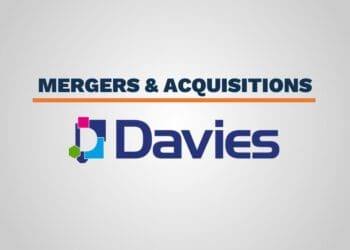The majority of fraud examiners expect to see a significant uptick in fraud over the coming year, which means fraud interviews will be on the rise as well. The Bonadio Group’s Tim Ball discusses best practices for conducting fraud interviews.
A survey by the Association of Certified Fraud Examiners conducted following the 2008 recession found that 80 percent of anti-fraud professionals said they believe fraud levels increase in times of economic distress. A more recent survey by the same organization found that 92 percent of fraud examiners expect to see further increase in the overall level of fraud during the next year. Therefore, more people than ever before may find themselves in the position of needing to conduct a fraud interview.
There are a lot of reasons why a fraud interview might be necessary – for example, during the risk assessment process of an audit or while investigating suspected fraud in one’s own business (or the client’s). Regardless of the application, the main purpose of a fraud interview is to gather information regarding suspected fraud.
The thought of sitting across from someone and asking if they committed fraud may seem like an unnerving task. It’s natural to wonder, “Do I have the right to ask these questions?” or “How do I know if they are being honest with me?”
Fraud interview questions and techniques are often learned and perfected by fraud examiners through years of fraud investigations. Each fraud examiner tends to develop their own style of interviewing, but there are some basic principles of a successful fraud interview that all professionals can follow. The following are some specific questions to help make any fraud interview you conduct more successful.
1. Start with Background Questions
Every fraud interview should start as a simple conversation. The goal is to learn some background information while building rapport with the interviewee. After stating the purpose of the interview, start with questions regarding the interviewee’s background, including:
- How long have you been at the company?
- What job titles have you had, and what are the responsibilities of your current title?
- What is your normal day like? Normal week? Normal month?
Once certain responsibilities of the interviewee have been established, ask for some detail on their tasks. Ask questions like:
- How do you personally stay organized? What tasks do you prioritize?
- When performing the month-end reconciliations, when are they due? Who reviews your work? Do they ever have review points? Do they sign off promptly?
- Who covers your responsibilities if you’re out? Who do you interact with the most in the office on a daily basis? Who do you rely on to provide the data/documentation for you to be able to complete your tasks?
Spending the time to learn about the interviewee and the responsibilities of their position will set a nice tone for the interview. Encouraging the interviewee to talk about themselves helps earn some trust and develop rapport. Through this line of questioning, information can be learned about their position within the company and exposure to other employees, processes and controls. This can be valuable to the current interview and other interviews conducted throughout the investigation.
2. Don’t Be Afraid to Double Check
One major shortcoming in inexperienced fraud interviewers is their reluctance to reconfirm statements, revisit subjects and ask for more examples. Often, interviewers don’t like to give the impression that they don’t understand or need a second explanation, but this step is crucial to a successful interview. Revisiting a subject multiple times and asking for more examples not only provides clarity, but can also identify inconsistencies in the interviewee’s statements. Interviewers should regularly go back through the details of a certain procedure or process that the interviewee has already explained, asking for more detail and examples, with questions like:
- I don’t understand this specific process. Can you explain to me what the senior accountant’s role is again?
- It doesn’t make sense to me that the checks are signed without the supporting documentation present. Can you walk me through the process again so I can understand the timing of the review?
The least of an interviewer’s worries should be looking uninformed or foolish. Nothing should get in the way of gaining a full understanding of what the interviewee is explaining.
Read more articles about fraud
3. Talk About What Keeps Them Up at Night
Once there is a certain level of rapport and an understanding of the interviewees position and responsibilities within the company, the interviewer should ask some questions to determine what areas bother them or appear risky:
- What keeps you up at night or worries you the most about your job?
- Are there times when you feel that you work outside of your job title or are asked to perform tasks that you aren’t qualified to do?
- Do you feel adequately supported by your supervisors? Is your work adequately reviewed?
- Do you see fellow employees performing tasks that you consider risky to the company?
Interviewers should not be afraid to probe further into answers. Most employees have at least a few things about their job that worries them. Oftentimes, it’s related to deadlines, work quality and the effects of turnover, but sometimes probing deeper into these issues may identify where policies and procedures are not followed, internal controls are circumvented or inappropriate transactions are overlooked.
4. Talk About Fraud
It’s not something most people like to talk about, but employees often know their position and company well enough that they could probably figure out how to commit fraud if they wanted to. Whether they’ve thought about it or not, they often know the vulnerabilities of the company as well as anyone. This makes all interviewees, whether a suspect of fraud or not, a great resource during a fraud investigation. Interviewers can ask questions like:
- What or where is the biggest risk to the company for fraud?
- What are the internal controls or policies that are circumvented the most?
- If you or others attempted to steal from the company, what would be the easiest way?
In many investigations, these types of questions often identify large fraud risks to the company that aren’t otherwise known. Although interviewees are unlikely to implicate themselves, they may point the investigation toward someone who has more information. Also, interviewees who are hesitant to talk specifically about one of their co-workers may still help uncover where in the company you should be looking.
Read more about internal investigations
5. Be Persistent as the Interview Continues
Once deep into a fraud interview, interviewers are in a good position to start asking the harder questions. If this is a general fraud interview with no suspicion of fraud, it’s time to ask the direct questions, such as:
- Have you participated in or witnessed fraudulent or questionable behavior within the company?
- Have you ever been asked to participate in or ignore a fraudulent act with the company?
- Are there any activities of the company that you consider fraudulent, immoral or criminal?
If this is a fraud investigation with specific allegations, now is the time to begin focusing on the known allegations, as well as any inconsistencies within the interview. Interviewers may want to begin to cross-reference their responsibilities with the information shared at the beginning of the interview, such as how they stay organized, who they report to, etc.
At the beginning of the interview, interviewees may exaggerate their responsibilities, motivated by a desire to tell the interviewer what they think they want to hear. But as the interviewer asks more questions and gets into more of the details of their responsibilities, shortcuts may be revealed, tasks they complete that aren’t reviewed, checks and balances that are being ignored or areas where their story just doesn’t add up. A good interviewer won’t let these items pass by. As these discrepancies are identified and real processes are clarified, interviewers should develop a clearer picture of the company, the likelihood of fraud and the potential involvement of the interviewee.
It’s important to remember that the best fraud interviews should feel more like a conversation than a choreographed call and response. Using questions like the ones presented above as a guide, an interviewer should be ready to let the conversation flow naturally and reel it back only when necessary. A talking interviewee is the best interviewee!
As Layoffs Continue, the Potential for Insider Fraud Is Growing. Are You Ready? Chris Gerda talks about new approaches banks and financial institutions should take to protect their commercial clients.



 Tim Ball is an Executive Vice President in
Tim Ball is an Executive Vice President in 









